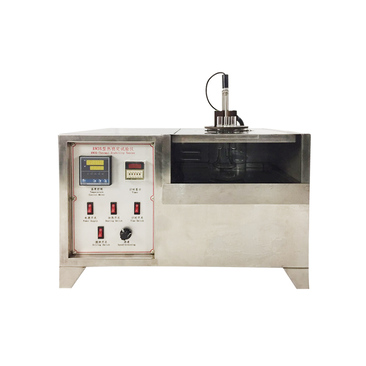custom resistance measuring instrument
Custom Resistance Measuring Instrument Enhancing Precision and Versatility
In an era where precision and accuracy are of utmost importance, particularly in fields like electronics, engineering, and research, the demand for customized instruments is on the rise. One of the key areas where specialized instruments play a crucial role is in resistance measurement. A custom resistance measuring instrument is designed to cater specifically to the unique requirements of various applications, ensuring reliable results and increased efficiency.
Resistance measurement is fundamental in assessing the performance of electronic components and circuits. Traditional multimeters may suffice for general use, but they often fall short in specialized scenarios. Custom resistance measuring instruments bridge this gap by offering tailored functionalities that enhance their measurement capabilities. These instruments can be engineered to measure resistances over a broad range, from micro-ohms to mega-ohms, thus accommodating different applications from low-resistance measurements in power applications to high-resistance tests in sensitive electronic components.
One of the primary advantages of custom resistance measuring instruments is their adaptability. Engineers can specify features such as measurement range, resolution, and even the type of measurement techniques employed, such as four-wire or two-wire configurations. Four-wire measurements, for instance, are particularly important for precision applications as they eliminate the effects of lead resistance, ensuring accurate readings. Furthermore, customization allows for integration with software for data logging and analysis, enabling users to seamlessly track changes over time and analyze trends.
custom resistance measuring instrument

Another significant benefit is the inclusion of built-in calibration features, which ensure the instrument maintains its accuracy over time. Users can implement their calibration protocols or make use of the manufacturer's predefined standards. This flexibility is vital in environments where stringent compliance with standards is required, such as laboratories and production facilities.
Portability and ease of use are also essential considerations in the design of custom instruments. Many users prefer compact, lightweight models that can be easily transported without compromising functionality. Customization can extend to user interfaces, with options for digital displays, touchscreen controls, or even wireless connectivity for remote monitoring. This adaptability not only enhances user experience but also allows these instruments to fit seamlessly into existing workflows.
The rise of IoT (Internet of Things) technologies has further fueled innovation in the realm of resistance measurement. Modern custom resistance measuring instruments can be equipped with connectivity features that allow for real-time data sharing and integration with larger monitoring systems. This capability is particularly advantageous in automated production lines or complex research setups, where constant monitoring and immediate data access are crucial.
In conclusion, a custom resistance measuring instrument represents a significant advancement in measurement technology tailored to meet specific needs. By enhancing precision, providing flexibility, and integrating with modern technologies, these instruments empower professionals across various fields to achieve greater accuracy and efficiency in their work. As industries continue to evolve, the importance of customized solutions in ensuring precise measurements will only grow, solidifying the role of these specialized instruments in the future of technology.
-
Why the Conductor Resistance Constant Temperature Measurement Machine Redefines Precision
NewsJun.20,2025
-
Reliable Testing Starts Here: Why the High Insulation Resistance Measuring Instrument Is a Must-Have
NewsJun.20,2025
-
Flexible Cable Flexing Test Equipment: The Precision Standard for Cable Durability and Performance Testing
NewsJun.20,2025
-
Digital Measurement Projector: Precision Visualization for Modern Manufacturing
NewsJun.20,2025
-
Computer Control Electronic Tensile Tester: Precision and Power for the Modern Metal Industry
NewsJun.20,2025
-
Cable Spark Tester: Your Ultimate Insulation Assurance for Wire and Cable Testing
NewsJun.20,2025
 Copyright © 2025 Hebei Fangyuan Instrument & Equipment Co.,Ltd. All Rights Reserved. Sitemap | Privacy Policy
Copyright © 2025 Hebei Fangyuan Instrument & Equipment Co.,Ltd. All Rights Reserved. Sitemap | Privacy Policy
